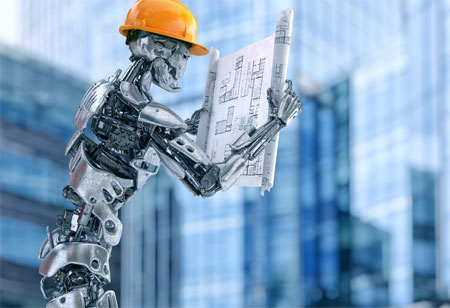THANK YOU FOR SUBSCRIBING
Japan's Construction Industry Now Equipped with AI
The technically equipped machines with state-of-the-art AI, cameras, and sensors, they can handle everything from transporting building materials to installing ceilings and welding steels.

By
Apac CIOOutlook | Tuesday, November 26, 2019
Stay ahead of the industry with exclusive feature stories on the top companies, expert insights and the latest news delivered straight to your inbox. Subscribe today.
The technically equipped machines with state-of-the-art AI, cameras, and sensors, they can handle everything from transporting building materials to installing ceilings and welding steels.
Fremont CA: Amidst the global growth slowdown, Japan's least productive sector i.e., the construction industry, is bolstering a huge capital expenditure into technology- and providing unexpected support to the economy wobbling due to the bitter U.S.- China trade war.
Japan's construction industries are constricted by the tightest labor market and a rapidly aging population since 1970. Finding its solution, the Industry has resorted to artificial intelligence (AI) and robotics, which can move on working at sites day and night and also facilitating materials for the next day's construction.
The technically equipped machines with state-of-the-art AI, cameras, and sensors, they can handle everything from transporting building materials to installing ceilings and welding steels. Shimizu Corporation, a Japan-based construction company has invested over 3 billion yen ($27.7 million) over the past three years in robots. The company estimates that robots have replaced labor by 1.1% as of now, but it is confident enough to expand the use of robots to cover almost three-fourths of the total construction work.
Japan has faced several disasters like typhoons and flooding in the recent past. To overcome those before the onset of the 2020 Olympic games, the construction work in Japan has blossomed under the scheme of 'Abenomics' introduced by Prime Minister Shinzo Abe. Leaving other sectors behind, the capital expenditure in the construction industry has risen to 7.7% in the April-June quarter.
Construction firms plan to invest in Research and Development by spending 15.5% in the fiscal year ending in March 2020. It is also the highest among all sectors which intend to increase such spending.
According to a report, there are 5.1 million construction workers in Japan as of end-August, which is 27 percent less than what was 20 years ago. The probable reason for this, apart from a small labor pool, is an aging population. About one-fourth of Japan's construction industry's skilled workers are aged 60 or above, and only a tenth of the total are under 30.
It shows almost all companies are struggling for workers as the jobless rate hovers at more than two-decade low of 2.2 percent, and the job opening for any applicant is near its highest point in 45 years. Battling such unfavorable factors, it is quite crucial to maintain productivity in a country like Japan.
Shifting to technology has made the work easier, faster, smarter, and obviously with less use of the workforce. There lies a challenge of orienting the older workers to new technology. Once done, they can bring a revolutionary change in the construction industry.
Check out: Top Construction Technology Companies





